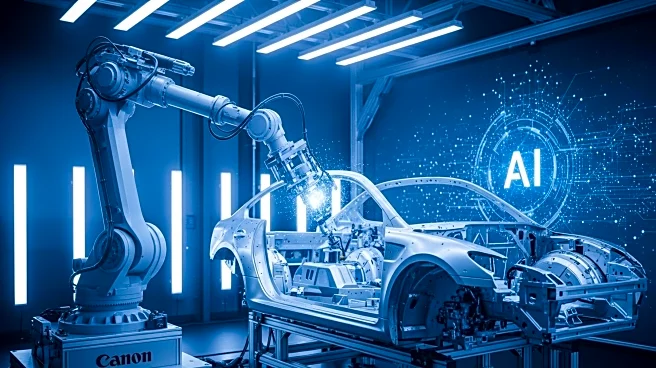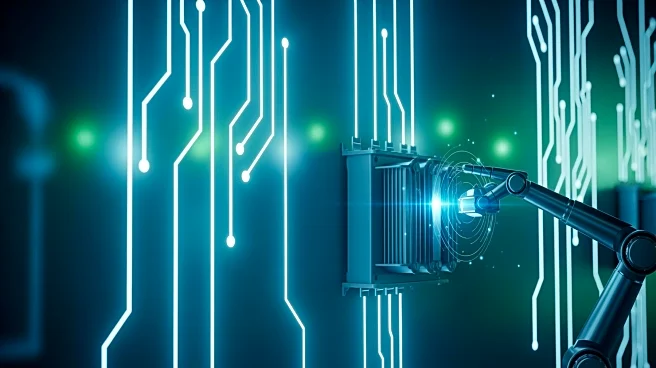What is the story about?
What's Happening?
Machina Labs has introduced a new approach to automotive body manufacturing that leverages robotics and artificial intelligence to enable customization at mass-production prices. Traditionally, automotive manufacturing relies on large, expensive dies and presses to form sheet metal into vehicle panels. Machina Labs' solution eliminates the need for these dedicated tools, reducing project capital and storage requirements. The company's RoboCraftsman platform integrates advanced robotics and AI-driven process controls to manufacture complex metal structures for various industries, including aerospace, defense, and automotive. This innovation allows for rapid production changeovers and the use of new alloys like titanium and nickel, which were previously difficult to form at room temperature.
Why It's Important?
The introduction of Machina Labs' technology could significantly impact the automotive industry by enabling greater customization and reducing production costs. This development aligns with the growing consumer demand for personalized products and could disrupt traditional manufacturing models that rely on high-volume, low-variation production. By allowing for on-demand part production and dynamic batching, Machina Labs' approach could streamline manufacturing processes and reduce the need for extensive storage and inventory management. This shift could benefit manufacturers by lowering costs and increasing flexibility, while consumers could enjoy more personalized vehicle options.
What's Next?
Machina Labs is collaborating with Toyota Motor North America to pilot its RoboForming technology, aiming to bring automotive-grade quality to low-volume manufacturing. This partnership, supported by a strategic investment from Woven Capital, Toyota's venture investment arm, will focus on customizing body panels. Over the next year, Machina Labs plans to integrate its systems into automotive production, potentially expanding its application to thousands of vehicles. This initiative could pave the way for a new era of vehicle personalization, making bespoke automotive products accessible to a broader audience.
Beyond the Headlines
The shift towards AI-powered manufacturing represents a broader trend in the industry, where companies seek to enhance efficiency and meet consumer demands for customization. This approach challenges the traditional mass-production model introduced by Ford, which prioritized uniformity and cost-effectiveness. By reintroducing personalization, Machina Labs is tapping into a market that values individual expression, potentially transforming how vehicles are designed and produced. This innovation could also influence other sectors, encouraging the adoption of flexible manufacturing processes across industries.















